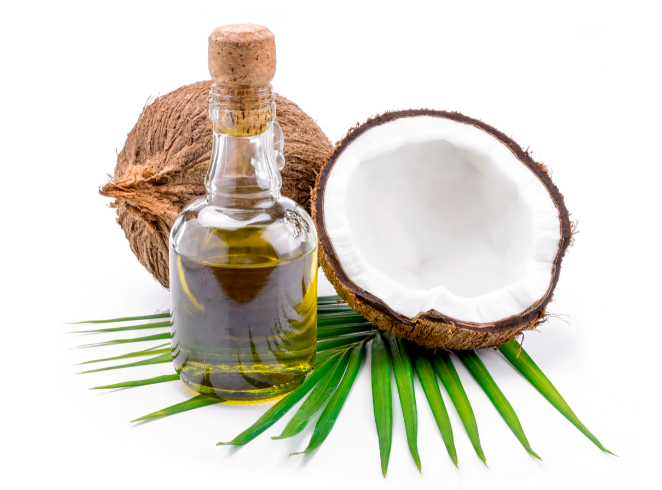The choice of cooking oil can significantly impact the taste, texture, and overall health impact of a dish. Two prominent contenders in this domain are extra virgin olive oil and coconut oil.
Both oils have been celebrated for their unique flavors and potential health benefits. This article looks into the distinct characteristics of extra virgin olive oil and coconut oil, exploring their nutritional profiles, culinary applications, and potential health impacts.
Olive Oil: Liquid Gold from the Mediterranean
Extra virgin olive oil, often referred to as liquid gold, has been an integral part of Mediterranean cuisine for centuries. It is primarily extracted from the fruit of the olive tree (Olea europaea) and is renowned for its rich, fruity flavor and versatility.
- Nutritional Profile: Extra virgin olive oil is primarily composed of monounsaturated fats, specifically oleic acid, which is considered heart-healthy. It also contains antioxidants, such as vitamin E and polyphenols, which contribute to its anti-inflammatory properties.
- Culinary Uses: Extra virgin olive oil is prized for its ability to enhance the natural flavors of various dishes. It is commonly used in salad dressings, marinades, and sautéed preparations. Extra virgin olive oil is derived from the first pressing of olives and is particularly esteemed for its robust flavor, health benefits and superior quality.
- Health Benefits: Regular consumption of extra virgin olive oil has been associated with a reduced risk of heart disease, inflammation, and certain types of cancer. Its high content of monounsaturated fats is believed to contribute to improved cardiovascular health.
Coconut Oil: The Tropical Elixir
Coconut oil, extracted from the meat of mature coconuts, has gained widespread popularity in recent years, especially in the realm of natural health and wellness.
- Nutritional Profile: Coconut oil is predominantly composed of saturated fats, specifically lauric acid, which is known for its antimicrobial properties. It also contains medium-chain triglycerides (MCTs), which are easily digestible and quickly converted into energy by the body.
- Culinary Uses: Coconut oil is a staple in tropical cuisines and is often used in curries, stir-fries, and baked goods. Its distinct nutty flavor adds a unique dimension to dishes. Additionally, it is a popular choice among vegans as a butter substitute in baking.
- Health Benefits: Coconut oil is believed to support weight loss efforts due to its MCT content, which can increase energy expenditure.
- However, its high saturated fat content has raised concerns regarding its negative impact on heart health. Research on the health effects of coconut oil is ongoing, and it is essential to consume it in moderation.
Making an Informed Choice
When it comes to choosing between extra virgin olive oil and coconut oil, several factors come into play:
- Culinary Application: Extra virgin olive oil’s rich and diverse flavor profile makes it suitable for a wide range of culinary applications, from drizzling over salads to cooking delicate fish. Coconut oil, with its intense coconut aroma, is best suited for tropical and Asian-inspired dishes.
- Nutritional Content: Extra virgin olive oil is a healthier option due to its high monounsaturated fat content and antioxidant properties. Coconut oil, while containing beneficial MCTs, should be consumed in moderation due to its high saturated fat content, which might raise cholesterol levels if consumed excessively.
- Health Considerations: Individuals with specific dietary needs, such as those following a Mediterranean diet for heart health, may prefer extra virgin olive oil. Meanwhile, individuals seeking the potential benefits of MCTs, such as improved energy and metabolism, might opt for coconut oil.
The Results
Both extra virgin olive oil and coconut oil offer distinctive flavors and potential health benefits. Extra virgin olive oil, with its centuries-old legacy and proven health advantages, remains a culinary classic, enriching dishes with its fruity notes.
On the other hand, coconut oil’s exotic aroma and potential MCT wellness perks make it a trendy choice, especially in certain dietary practices.
Ultimately, the choice between olive oil and coconut oil depends on individual preferences, culinary needs, and health goals. By understanding the unique qualities of each oil, one can make an informed decision, ensuring that every meal is not only flavorful but also mindful of personal well-being.
So, whether you’re sautéing vegetables or baking a cake, the choice between these two remarkable oils can transform an ordinary recipe into a culinary masterpiece. Thank you!
Please consult your doctor or licensed nutritionist prior to making any dietary changes.
Please leave questions, comments or suggestions below.
Tom – Olive Oil Lover


